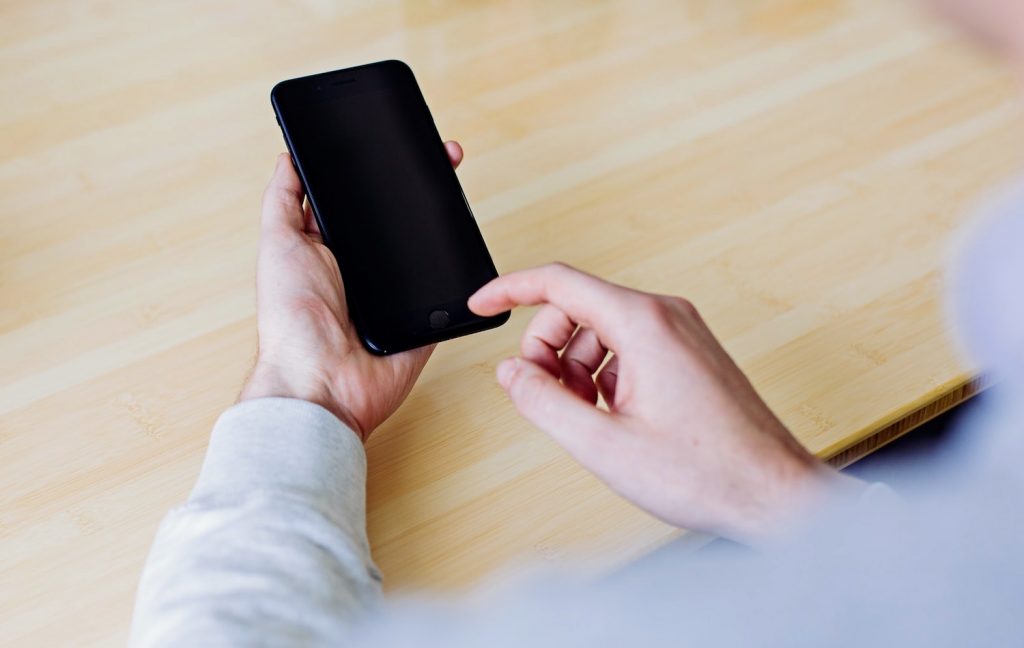A new study published in the journal Psychotherapy Research indicates that people who started meditating using an app have a higher likelihood of developing the adverse effects that can result from meditation practice.
This finding was included in “Prevalence of meditation-related adverse effects in a population-based sample in the United States,” which was published in June 2021. The study’s authors conducted what they believe to be the first population-based survey of the adverse effects of meditation (participants, it should be noted, practiced mindfulness, mantra, and spiritual meditation, not explicitly Buddhist meditation). Findings suggest that 10.6 percent of the nearly 1,000 people surveyed reported that they had “functional impairment” for a period of time (ranging from less than a day to more than a month). The most common adverse effects were anxiety, traumatic re-experiencing, and emotional sensitivity, according to the authors, who also found that people with childhood trauma were more likely to experience adverse effects.
Another very big takeaway that was not the main focus of the study: being first exposed to meditation via an app—what the authors call a “predominately unguided format”—is a predictor of developing adverse effects, as meditation is practiced alone and likely without the support of a meditation teacher.
“We saw some evidence that those who were first exposed to meditation through a smartphone app were more likely to experience impairment from meditation. Given the surging popularity of meditation apps, it is important to continue studying their safety, particularly if people are first learning to meditate this way,” said Simon Goldberg, an Assistant Professor in the Department of Counseling Psychology and Affiliate Faculty at the Center for Healthy Minds at the University of Wisconsin-Madison. “At the same time, this result was based on only a small number of participants first exposed through an app and we did not see evidence that using apps generally was associated with adverse effects. So, it would be inaccurate to say we know that apps are not a safe way to practice meditation.”
Goldberg said findings did not indicate that using apps in general were associated with adverse effects, just being first exposed by an app. He stressed that it was a small number of participants (17) first exposed via an app, but that the finding persisted when controlled for demographics. “I will feel more confident in this finding when someone else replicates it, ideally in a larger sample,” Goldberg added.
“We’re talking about this wellness space that’s completely unregulated,” said Willoughby Britton, an associate professor and director of the Clinical and Affective Neuroscience Laboratory at Brown University and a coauthor on the study. “So a lot of what happens in the wellness space is not empirically based, it’s not being provided by healthcare professionals. And there’s no accountability and liability (as is the case with a licensed health provider). Most apps and meditation teachers can claim whatever they want. Who’s going to regulate them?”
Nearly half of the study’s participants were first introduced to meditation by an app. Researchers didn’t indicate a percentage of people first exposed to meditation by an app who had adverse effects, but did identify app use as a risk factor.
Meditation apps are an estimated $1.2 billion dollar business, with more than 2,500 meditation apps launched since 2015. The COVID-19 pandemic has made the boom times even boom-ier, with an estimated two million downloads of the top ten English language smartphone apps in April 2020, the first full month of social distancing in many places around the world. Many employers have been offering meditation apps as stress-reduction tools for their employees through the pandemic.
Britton, while declining to name the worst app offenders, said there are “certain apps that seem to cause a lot of problems.” Britton also runs a nonprofit for meditators in distress called Cheetah House that also provides harm reduction training. “Sometimes the owners of the apps are aware and have reached out to us. Other times we have contacted the app and said, ‘Do you know what is happening? Do you want some help?’” Britton said.
Goldberg, the lead author, said that he’s involved in two recent randomized control trials to test the Healthy Minds Program app in people with limited meditation background. “In both studies, we found that those assigned to the meditation app group were less likely to experience clinically significant increases in psychological distress. To me, these kinds of randomized trials are much stronger tests of the safety of meditation apps than cross-sectional studies,” Goldberg said.
Tricycle has reached out to several meditation app companies for comment and has yet to hear back.
♦
For more on the adverse effects of meditation, read “Buddhism’s Biggest Open Secret.”
Thank you for subscribing to Tricycle! As a nonprofit, we depend on readers like you to keep Buddhist teachings and practices widely available.
